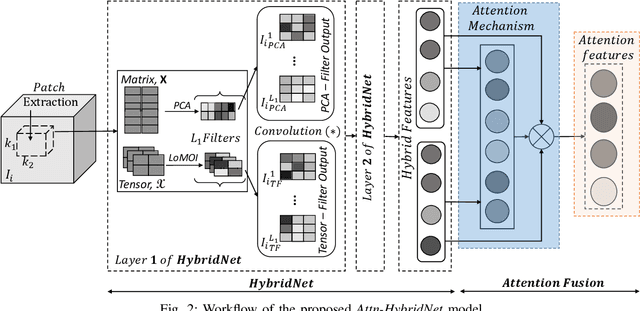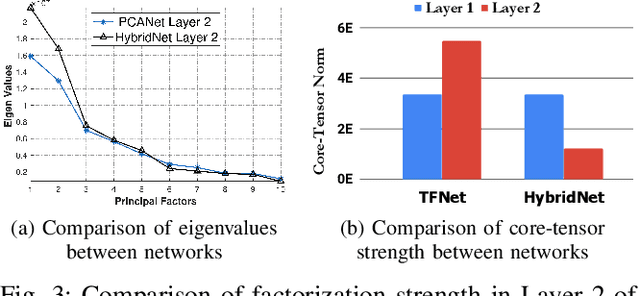Attn-HybridNet: Improving Discriminability of Hybrid Features with Attention Fusion
Paper and Code
Oct 14, 2020



The principal component analysis network (PCANet) is an unsupervised parsimonious deep network, utilizing principal components as filters in its convolution layers. Albeit powerful, the PCANet consists of basic operations such as principal components and spatial pooling, which suffers from two fundamental problems. First, the principal components obtain information by transforming it to column vectors (which we call the amalgamated view), which incurs the loss of the spatial information in the data. Second, the generalized spatial pooling utilized in the PCANet induces feature redundancy and also fails to accommodate spatial statistics of natural images. In this research, we first propose a tensor-factorization based deep network called the Tensor Factorization Network (TFNet). The TFNet extracts features from the spatial structure of the data (which we call the minutiae view). We then show that the information obtained by the PCANet and the TFNet are distinctive and non-trivial but individually insufficient. This phenomenon necessitates the development of proposed HybridNet, which integrates the information discovery with the two views of the data. To enhance the discriminability of hybrid features, we propose Attn-HybridNet, which alleviates the feature redundancy by performing attention-based feature fusion. The significance of our proposed Attn-HybridNet is demonstrated on multiple real-world datasets where the features obtained with Attn-HybridNet achieves better classification performance over other popular baseline methods, demonstrating the effectiveness of the proposed technique.
 Add to Chrome
Add to Chrome Add to Firefox
Add to Firefox Add to Edge
Add to Edge